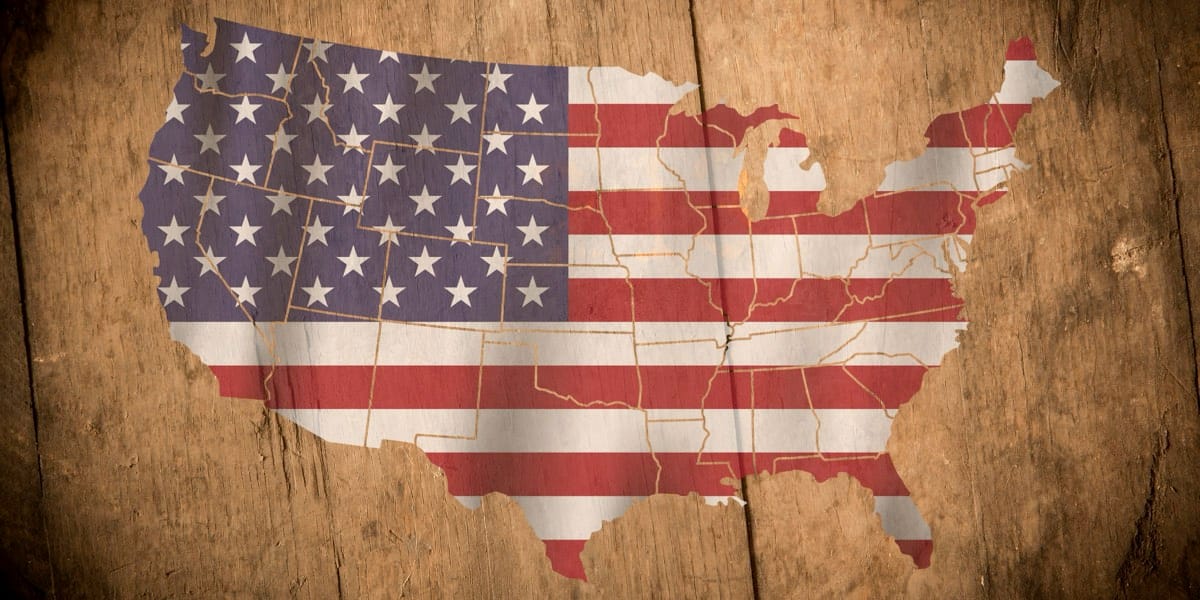[ad_1]

Few spirits {industry} bellwethers are as indicative of general market circumstances as MGPI, and information revealed Wednesday concerning the Atchison, Kan., agency firm certainly attracted industry-wide consideration.
In a report on TheSpiritsBusiness.com, together with MGPI’s latest third quarter outcomes, the venerable distillery in Lawrenceburg, Ind., introduced it’s going to faucet the brakes instantly on its whiskey manufacturing. The transfer is in response to its consolidated gross sales falling 24 % throughout the three-month interval ending Sept. 30.
The corporate stated it will cut back general whiskey manufacturing and shift its efforts to its branded spirits traces that embrace Remus Bourbon, Penelope Bourbon and Rossville Union Rye. (MGPI additionally closed its Atchison, Kan., distillery in 2023 after its impartial spirits demand dropped.)
In brief, they’ll make and age much less whiskey after which work to spice up gross sales of its branded spirits—gross sales of which fell 6 % for the quarter. The lone shiny spots in that group have been its tequila and American whiskey portfolios, which rose 1 %.
Just a few factors to look at
The primary is delicate demand for bulk whiskey offered to NDPs and craft distillers. Bulk whiskey moved from cheap lower than a decade in the past to expensive when the market received tight just a few years in the past. But now, costs are falling once more as provides pile up.
If the largest, best-connected bulk provider out there is popping away from that portion of its enterprise, does that open the door for different contract suppliers? Or are additionally they dealing with extra inventories that can drive them to sluggish manufacturing?
And nobody needs to contemplate what meaning for distilleries beneath development.
Its Remus, Rossville and Penelope traces are, in comparison with legacy manufacturers, comparatively new to the market. Might clients’ lack of awareness about these be enjoying a job of their delicate gross sales? Perhaps. Longtime whiskey drinkers are creatures of ironclad behavior, and if cash’s tight, they’re unlikely to experiment with unfamiliar bottles.
If MGPI is backing off, certainly the corporate expects this present gross sales hunch to linger for longer than anybody anticipated or needs. It’s already clear that gross sales are down at Jack Daniel (nee Brown-Forman), so it’s going to get attention-grabbing as different publicly held whiskey corporations launch their quarterlies within the coming weeks.
Are customers nonetheless whittling down their Covid shares?
Sure, apparently, or no less than in response to a narrative on Wine-Searcher.com. Within the article,
SipSource analyst Danny Brager stated shopper gross sales stay low as a result of folks haven't but drunk up all of the bottles they purchased after they have been caught indoors.
Actually? How a lot booze did these folks purchase throughout the pandemic? How bored did they turn into that they purchased a lot beverage alcohol that they’re nonetheless sipping away at their stash greater than two years after hardest restrictions have been lifted?
Let’s perform a little math and see if this is smart. In response to the U.S. Division of Well being and Human Companies, males can have two drinks a day of beer, wine or spiritous alcohol. To simplify issues, let’s simply stick with spirits.
If a man had two 1.5 ounce parts day by day, he’d down all however 5.5 ounces of a 25.5 ounce (750ml) bottle every week. At that tempo, he’s consuming virtually 43 750mls yearly. Now add ladies into the equation: It’s advisable they restrict themselves to only one drink of spirits day by day, which is 10.5 ounces every week. On the annual, women could be downing 21.4 750ml bottles. After all, not everybody drinks day by day, however most everybody drinks extra throughout holidays, on weekends and on trip, so although my math isn’t totally vetted, it’s nonetheless dependable.
Have a look at it this fashion: Since liquor shops by no means closed, why was everybody shopping for to the purpose of extra anyway? Who wanted a booze bunker when your provider stayed open? Heck, even eating places and bars have been promoting bottles. The stuff was in all places on a regular basis.
So again to my query: Whereas folks clearly purchased extra throughout Covid, did they purchase a lot that all of them however stopped after 2022 and haven’t bought since? Even in the event you had a yr’s provide on your property bar that yr, how did you not run out in 2023—primarily based on my free math?
Yeah, I get how folks purchase—identical to me: a bottle right here, a bottle there, typically in no way and typically inventory it up! (Face it, loyal readers, common drinkers don’t refill like we lovers do. We’re the weirdos right here, the individuals who purchase three of 1 factor at a time to maintain the true hoarders and flippers from getting all of it.) The overwhelming majority of drinkers seize a deal with, go dwelling, drink it dry and return for a similar factor later. Theirs are short-term stashes.
Both researchers know one thing plebeians like me don’t know or I’m accurately sensing these “Covid stash” claims is likely to be baseless. Tossing it out each time spirits {industry} gross sales fall is starting to return off as a handy excuse for a deeper downside.
What results will Trump tariffs have on spirits?
You knew I’d carry this up sooner or later. Like him or not, Donald J. Trump is headed again to the White Home in 2026. Among the many suitcase load of scores he’s itching to settle are international commerce imbalances he needs to regulate with a return to tariffs he utilized in 2018. When you recall, these tariffs banged up earnings at distilleries massive (Jack Daniel) and small (Cactoctin Creek, which noticed its diligent work in Europe vaporize).
On this yr's bloody, slimy marketing campaign path, Trump promised he’d do it once more, and given the best way he upped the ante on imported wines simply earlier than he left workplace, one can think about his ax is already sharpened for battle.
Apparently nobody however he’s completely satisfied about it. American customers of imported drinks are being advised now to refill earlier than tariffs are reenacted, and distilleries who’d returned to enterprise as principally regular in Europe can beat the Christmas rush and begin fretting now. Scotch makers don’t need tariffs reenstated both. They misplaced an estimated $1.2 million a day whereas tariffs have been in impact till the Biden administration suspended them briefly.
Sufficient about grim politics. The query everybody needs answered is how this can have an effect on American distillers and customers. In response to Brian Rosen, potential outcomes are many and multifaceted. As chairman of InvestBev, a non-public fairness group with massive holdings in spirits, he’s been teaching his shoppers to organize for a lot of eventualities.
These in American whiskey may gain advantage, he stated, as a result of imported whiskeys will value extra, which could lead on customers to modify to American-made merchandise.
“If I’m a U.S. spirits model provider or distributor, particularly in the event you’re in Kentucky bourbon, you’re going to be uniquely positioned to earn more money,” he stated. “Saki, Japanese whiskey, Irish whiskey, Scotch … their costs are going to extend and turn into too costly. I’ll assume they’ll come to American whiskey.”
The problem, he stated, will probably be for international nations to purchase American merchandise and promote them into these markets. “It’ll be too costly,” he stated.
American manufacturers with a world presence—Jack Daniel’s and Jim Beam particularly—will really feel the pinch on earnings, however most mid-tier and smaller producers have little to no presence abroad. In complete, he stated, American whiskey exports are lower than $500 million, nicely in need of the multibillion-dollar home market. However $500 million remains to be $500 million!
Explicit to InvestBev, Rosen’s group has $100 million in barreled American whiskey contracted for abroad shoppers. Managing these investments correctly and in present circumstances is essential to their profitability and cost-effective transport of these spirits abroad.
American producers additionally might face different points if they’ve agave spirits of their portfolios since Trump’s grievances with Mexico and points on the U.S. southern border are nicely documented. Rosen stated he’s working together with his tequila companions to regulate now and keep away from future issues.
“We plan to purchase agave-based spirits and hold them stateside earlier than the tariffs take impact,” Rosen stated. “We will put together the enterprise for what a lockdown of the border can appear to be, whether or not it’s to make items prematurely or work with distributors to purchase forward. It could possibly be a windfall for our Siempre (tequila) model … or go the opposite approach.”
[ad_2]

